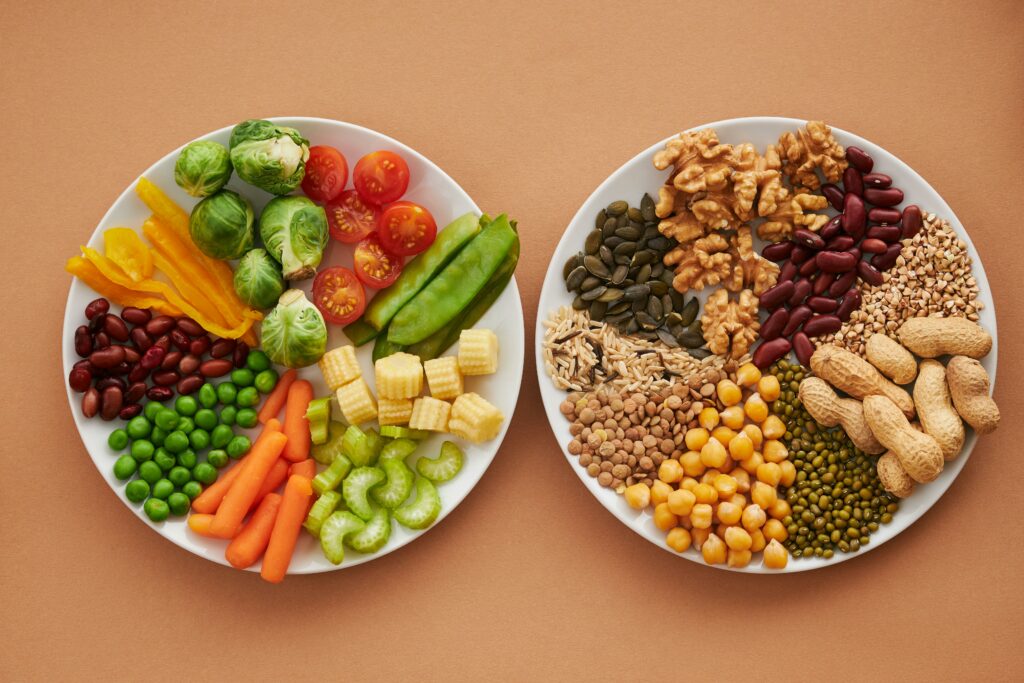Peptides, which are short chains of amino acids, play a critical role in numerous biological processes. Their significance in promoting lactation and infant development is an area of growing interest and research. This blog will explore how peptides contribute to these essential stages of early life, alongside the specific nutritional requirements for both lactating mothers and their infants.
Peptides and Lactation
Enhancing Milk Production:
Certain peptides can stimulate milk production. Prolactin, a hormone, is crucial for milk synthesis and secretion. Peptides derived from dietary proteins can influence prolactin levels. Casein, a protein found in milk, produces peptides upon digestion that can enhance prolactin secretion, thereby promoting lactation.
Immune Function Support
Peptides also support the immune function of both the mother and the infant. Lactoferrin, a peptide present in human milk, has antimicrobial properties that protect infants from infections. It binds iron, making it unavailable for bacterial growth, and enhances the immune response.
Nutritional Requirements for Lactating Mothers

For effective lactation, lactating mothers must meet increased nutritional demands. These requirements ensure both the mother’s health and the quality of breast milk for the infant.
Macronutrients
- Proteins: Essential for milk production. Sources include lean meats, dairy, legumes, and nuts.
- Fats: Important for the energy needs of both mother and baby. Omega-3 fatty acids, found in fish and flaxseeds, are particularly beneficial.
- Carbohydrates: Provide the primary energy source. Whole grains, fruits, and vegetables are recommended.
Micronutrients
- Vitamins:
- Vitamin D: Supports calcium absorption, crucial for bone health.
- Vitamin A: Important for vision and immune function.
- B Vitamins: Aid in energy metabolism.
- Minerals:
- Calcium: Essential for bone health.
- Iron: Important for preventing anemia.
- Zinc: Supports immune function and cellular repair.
Nutritional Needs for Infants

Infants have unique nutritional needs to support rapid growth and development. Breast milk is typically sufficient to meet these needs in the first six months.
Macronutrients
- Proteins: Critical for growth and development. Breast milk provides easily digestible proteins.
- Fats: Essential for brain development. Breast milk is rich in healthy fats.
- Carbohydrates: Lactose in breast milk is a vital source of energy.
Micronutrients
- Vitamins:
- Vitamin D: Often supplemented to ensure proper bone development.
- Vitamin K: Given at birth to prevent bleeding disorders.
- Vitamin B12: Especially important if the mother is vegetarian or vegan.
- Minerals:
- Calcium and Phosphorus: Crucial for bone health.
- Iron: Though breast milk has low iron, it is highly bioavailable. Supplementation may be necessary after six months.
- Iodine: Important for thyroid function and brain development.
Peptides in Infant Formula

For mothers unable to breastfeed, infant formula fortified with essential peptides can be a viable alternative. Hydrolyzed protein formulas contain peptides that are easier for infants to digest and can reduce the risk of allergic reactions.
Peptides play a significant role in promoting lactation and supporting infant development. Understanding the nutritional needs of both lactating mothers and infants is crucial for ensuring optimal health outcomes. A balanced diet rich in essential nutrients supports lactation, while breast milk or appropriately formulated infant formula provides the foundation for healthy infant growth and development. As research continues, the importance of peptides and other bioactive components in early nutrition will likely become even more evident.
For mothers and caregivers, focusing on a nutrient-rich diet and understanding the critical role of peptides can help in making informed decisions to support both maternal health and infant development.
-
Dietary Proteins:
- Milk: Casein and whey proteins in milk are rich sources of bioactive peptides. Upon digestion, these proteins release peptides that can have various health benefits.
- Meat: Muscle proteins from beef, chicken, and other meats contain peptides that can be released during digestion or food processing.
- Fish: Marine sources, including fish and shellfish, are rich in peptides that have antioxidant and anti-inflammatory properties.
- Eggs: Egg whites and yolks are excellent sources of various peptides with immune-boosting and antimicrobial activities.
- Soy: Soybeans and soy products are rich in peptides, particularly those with cholesterol-lowering and antioxidant effects.
-
Fermented Foods:
- Fermentation processes involving bacteria or yeast can break down proteins in foods, releasing peptides. Examples include yogurt, kefir, and miso.
-
Plant Sources:
- Grains: Whole grains like oats, wheat, and rice contain peptides with potential health benefits.
- Legumes: Peptides from beans, lentils, and chickpeas are known for their antioxidant and antihypertensive properties.
- Seeds and Nuts: These contain peptides that can be released during digestion or food processing.
Synthetic Sources of Peptides

-
Chemical Synthesis:
- Peptides can be synthesized chemically in laboratories using techniques such as solid-phase peptide synthesis (SPPS). This method allows for the precise construction of peptides with specific sequences.
-
Recombinant DNA Technology:
- Using genetic engineering, peptides can be produced by inserting the gene encoding the desired peptide into microorganisms such as bacteria or yeast. These microorganisms then produce the peptide, which can be harvested and purified.
-
Enzymatic Hydrolysis:
- Enzymes can be used to hydrolyze proteins into peptides. This process is often employed in the food industry to produce hydrolyzed protein products rich in peptides.
Applications of Peptides
-
Medical and Pharmaceutical Uses:
- Peptides are used in developing medications for various conditions, including diabetes, cancer, and infectious diseases. Insulin, a peptide hormone, is a well-known example used in diabetes treatment.
-
Nutritional Supplements:
- Peptide supplements are available for various health benefits, including muscle building, skin health, and immune support.
-
Cosmetics:
- Peptides are incorporated into skincare products for their anti-aging and skin-repairing properties.
Peptides can be sourced from a wide array of natural foods, particularly protein-rich foods like milk, meat, fish, and soy. Fermented foods and certain plant-based sources also provide beneficial peptides. Additionally, advancements in chemical synthesis and biotechnology have enabled the production of peptides for medical, nutritional, and cosmetic applications. Understanding these sources and the methods of obtaining peptides helps in leveraging their benefits for health and wellness.


